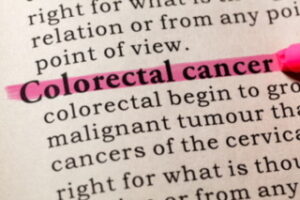
Florida A&M University’s future public health professionals hosted the “Colorectal Cancer Awareness Seminar” on Wednesday via Zoom. John Luque and Prashanth Vennataganti, MD were the designated speakers on this panel.
Dr. Luque spoke on his current research at FAMU involving colorectal cancer. “African Americans are among the most disparaged groups when it comes to medical screenings,” Dr. Luque said. “Our goal is to research the causes, and develop initiatives to take in order to raise screening awareness in underserved groups.”

The colon and rectum make up the large intestine in the human body. According to the Center of Disease Control, colorectal cancer is a disease in which cells in the colon or rectum grow out of control. Abnormal growths called polyps form in the colon or rectum, and over time, these polyps may turn into cancer. Recent data concludes that an estimated 150,000 people under 50 die due to colorectal cancer. The number is steadily increasing among younger individuals around the ages of 30 to 45 years old.
Prashanth Vennataganti, MD studied medicine at the University of Kansas, and is a gastroenterologist. Vennataganti seems to think that the increasing numbers are leading researchers to conclude that diet and lifestyle choices may be a huge factor in the prevalence of these cases in younger people. “Smoking, excessive alcohol, heavy meat consumption and limited exercise have shown to be some factors that affect these numbers, ” Vennataganti said. “Other factors include inherited risks and race, especially among African American and Alaskan Native males.”
According to the United States Preventive Services Task Force, systematic factors such as access to screening, quality of screening, quality of treatment and the time of diagnosis to treatment are major inequities that affect Black Adults.
Dr. Luque and Vennataganti are conducting research to better assist underserved communities in receiving accurate and timely colorectal cancer screenings. The most common health screening tests include stool- based tests which can be conducted annually, colonoscopies that are usually done every 10 years and sigmoidoscopies and C.T. colonography every five years. As testing ages are becoming lower, Dr. Luque encourages people who are 30 to 45 years of age, or have a history of bowel complications, unexplained weight loss, anemia and unexplained tiredness to get screened.
Dr. Luque is the lead researcher and conductor of a program to spread awareness of colorectal cancer called “Test Up Now” program that educates individuals on colorectal cancer screening and education. Individuals will have to meet the requirements to participate in Dr. Luque’s research, but students are more than welcome to promote the program through social media, and attending featured events.